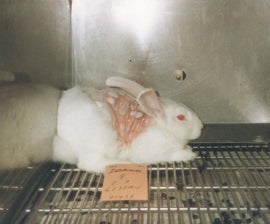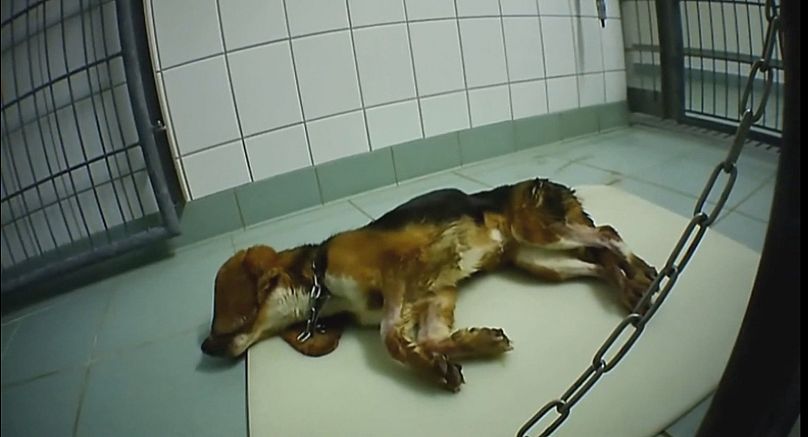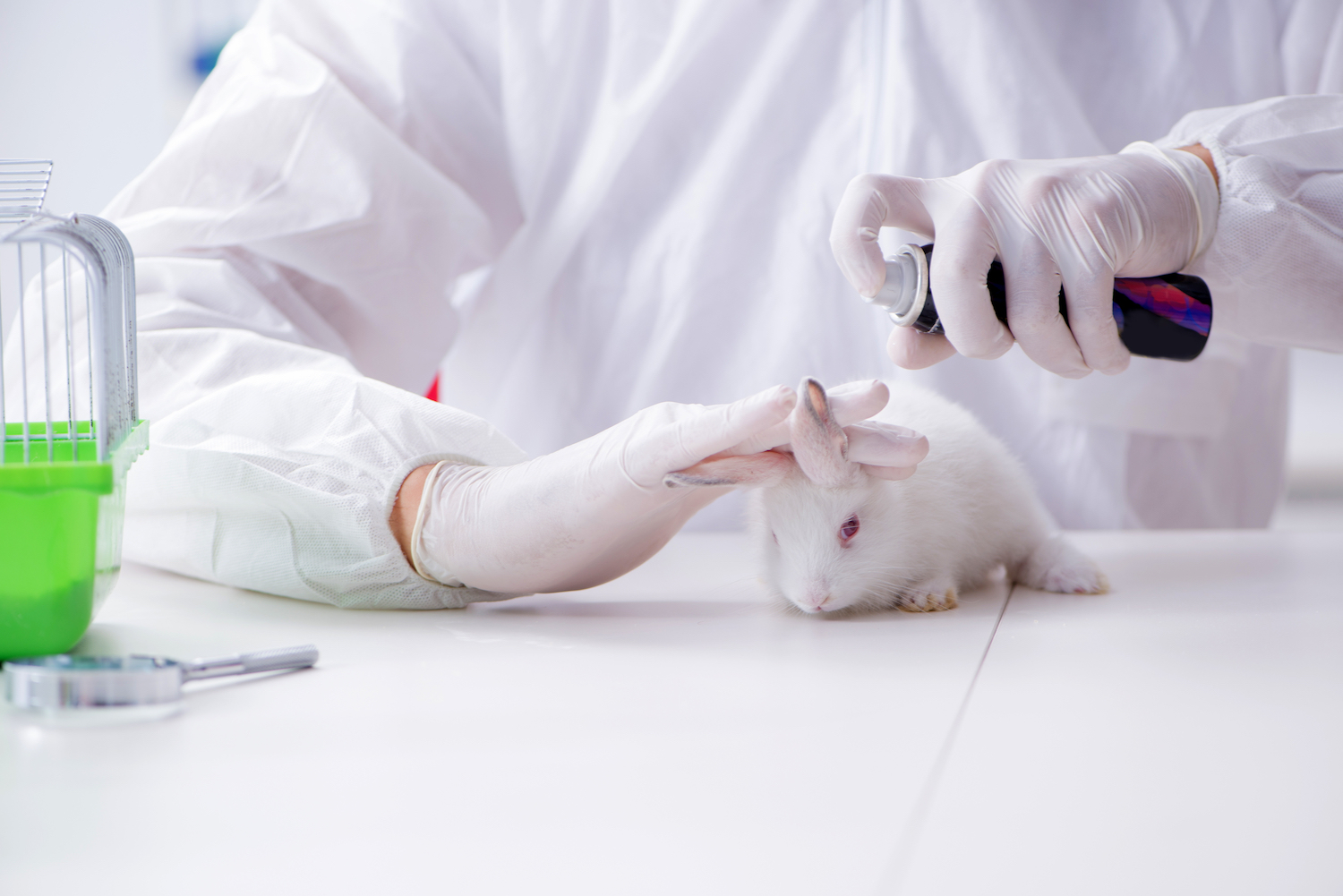- Get link
- X
- Other Apps
One enormous criticism of these tests is that they are performed without anaesthetics. Focused tier-based approach for toxicity test-ing of agricultural chemicals which would ultimately lead to the use of fewer animals Barton et al.
Toxicology Testing Using Animals
Toxicology is the study of how chemical substances interact with living systems and affect normal processes and the use of this information to predict safe exposure levels.

Toxicology animal testing. The use of dogs and NHP in xenobiotic testing continues to be the norm. Toxicity testing is the focus of this and the fol-lowing chapter for three reasons. Suppose for example that the animal model always indicates toxicity found in humans.
The role of pigs There is no ideal species to use in toxicology. Standardized Animal Toxicity Tests. Further PPV is conditional and depends on the prevalence of toxicity.
Animal test always indicates toxicity present in humans it has a sensitivity of 100. Pigs present a viable and perhaps more reliable model of non-rodent testing. Whether it is an experimental raw drug or a finished.
When possible they try to perform these toxicology tests using biochemical or cell-based in vitro systems instead of with animals such as mice. However if that test in addition always indicates toxicity even when it is absent in humans every drug tested may as well be dismissed as toxic to humans at the outset so knowledge of that tests specificity is also necessary. Understanding the strengths and weaknesses of any particular model is essential to understanding the.
Despite efforts to eliminate the use of animals in testing and the availability of many accepted alternative methods animals are still widely used for toxicological research and testing. In the case of animal models the sensitivity addresses only the ability of such models to detect toxicity that will subse-quently manifest itself in humans. Animal methods to evaluate toxicity have been developed for a wide variety of toxic effects.
The National Research Council NRC recently released a report titled Toxicity Testing in the 21st Century. The explosion of knowledge in molecular biology has also significantly affected toxicology. Animal Models in Toxicology Testing Key Assumptions Other organisms can serve as accurate predictive models of toxicity in humans.
Are you looking for the animal testing labs which perform toxicity. This is a neces- sary but not sufficient measure of evidential weight. Standardized animal toxicity tests have been highly effective in detecting toxicity that may occur in humans.
Selection of an appropriate model to use is key to accurate prediction in humans. Provided by any toxicity test. Toxicology testing also known as safety testing is conducted by pharmaceutical companies testing drugs or by contract animal testing facilities such as Huntingdon Life Sciences on behalf of a wide variety of customers.
Toxicology Testing Services Get off to a flying start with our toxicology testing services. Practical Aspects of. Toxicity testing in animals is conducted to identify possible adverse effects resulting from exposure to an agent and to develop dose-response relationships that allow evaluation of responses at other exposures.
Despite its decades of use the LD50. Human and animal health and the environment. Many toxicity tests examine specific types of adverse effects known as endpoints such as eye irritation or cancer.
The majority of toxicology testing comprises individual ingredients in a formulation. Toxicology testing We do what you need. As noted above concern for animal welfare has resulted in.
Animal models of toxicology testing. Scientists often study the effects of drugs and chemicals on animals before they deem them safe for humans. Acute toxicity testing began during the World War I era with the now-infamous lethal dose 50 percent LD50 test which even today remains a common animal-poisoning study.
It would then have a sensitivity of. A Vision and a Strategy that outlines a much more ambi-tious and long-term vision for. Toxicity tests are designed to minimize variance bias and the potential for false-positive and false-negative results.
Toxicology Testing Using Animals Benefits of Toxicology Tests. In this test groups of animals are force-fed increasing amounts of a test substance or increasing amounts are applied to their skin until half of them die. In addition there has been a growing recog-nition ofthe limitations ofcer-tain standard in vivo testing procedures.
First this is an area of animal use in testing in which the govern- ment has great influence on nongovernmental ac-tivities. Second these tests are used in a more rou-tine fashion than are tests for efficacy or general safety and therefore have a greater tendency to lag in the. Toxicological research and testing helps us to live safely and to derive benefit.
Criticisms of Toxicology Testing. Moreover the costs of assessing potential health effects ofsome 200000 sub-stances per year that are newly. Animal testing is the onlyoption in toxicity testing.
Some procedures for routine safety testing have been standardized. A toxicity test by extension is designed to generate data concerning the adverse effects of a substance on human or animal health or the environment.
 Undercover Footage Reveals Nightmarish Animal Testing In German Lab
Undercover Footage Reveals Nightmarish Animal Testing In German Lab
 Toxicity Testing On Animals At Vivotecnia Spain Cruelty Free International
Toxicity Testing On Animals At Vivotecnia Spain Cruelty Free International
 Animal Testing Of Chemicals Humane Society International
Animal Testing Of Chemicals Humane Society International
 U S Epa To Eliminate All Mammal Testing By 2035 Science Aaas
U S Epa To Eliminate All Mammal Testing By 2035 Science Aaas
Https Www Jstor Org Stable 24987355
 Toxtutor Testing For And Assessing Toxicity
Toxtutor Testing For And Assessing Toxicity
 Distressing Footage Animal Cruelty Activist Films Undercover At German Testing Laboratory Euronews
Distressing Footage Animal Cruelty Activist Films Undercover At German Testing Laboratory Euronews
 What Are The Alternatives To Animal Testing Live Science
What Are The Alternatives To Animal Testing Live Science
 Toxicology Testing Services Toxicity Testing Labs Toxicology Labs
Toxicology Testing Services Toxicity Testing Labs Toxicology Labs
 Toxicity Testing Of Chemicals The Current Animal Methods Download Table
Toxicity Testing Of Chemicals The Current Animal Methods Download Table
 Toxicity Testing Gets A Makeover Nature News
Toxicity Testing Gets A Makeover Nature News
 Petition Stop Animal Testing Close The Laboratory Of Pharmacology And Toxicology Hamburg Change Org
Petition Stop Animal Testing Close The Laboratory Of Pharmacology And Toxicology Hamburg Change Org


Comments
Post a Comment